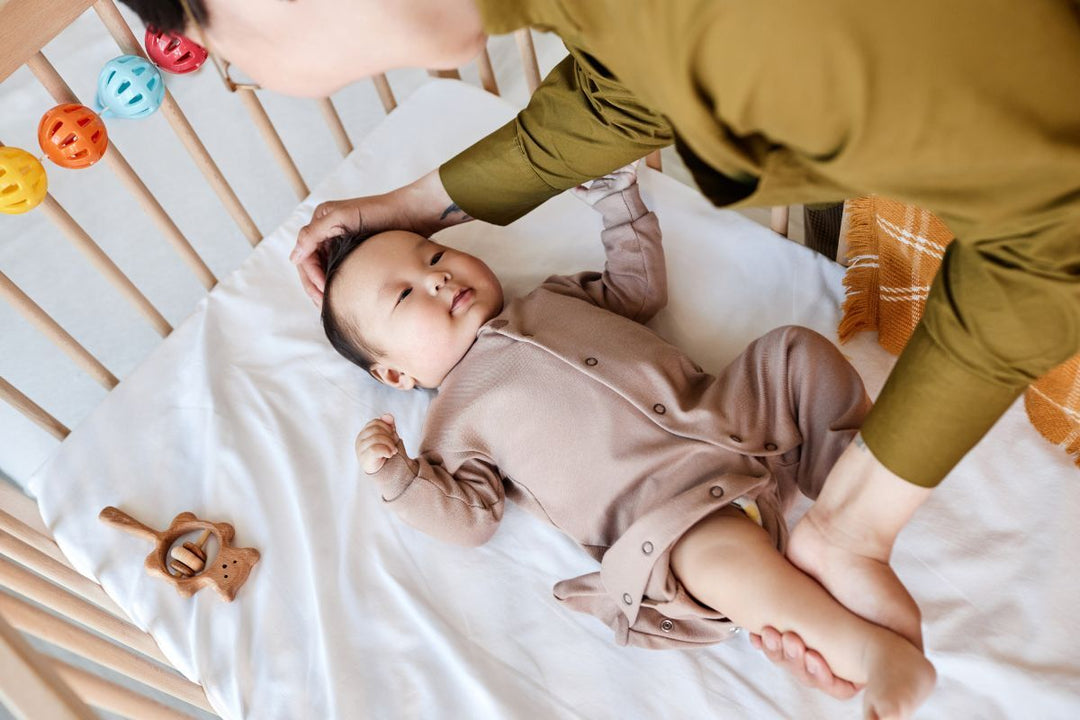Old-fashioned baby names are having a revival in Australia. Parents are drawn to names that feel strong, elegant, nostalgic, and grounded in history. They have character. They have weight. And unlike ultra-modern names, vintage names carry stories from previous generations.
Naming a baby is more than choosing a word you like. It’s branding, for a human, the extension of you. Names instantly evoke images, personalities, and cultural associations. Say “Winston” and you picture a cigar-smoking, broad-framed wartime leader, the archetypal “British Bulldog.” Say “Arnold,” and an entire generation sees Schwarzenegger in Terminator mode.
Names create expectations, hopes, and sometimes even a sense of destiny. They shape how others see our children before they ever speak a word. In many ways, naming a child is choosing the qualities we hope they’ll grow into, or at least qualities we’re proud to wrap around them.
Why Vintage Baby Names Are Back
Vintage names endure because they feel meaningful, familiar, and rich with identity. They strike the balance many parents want: classic but not stuffy, recognisable but not overdone, traditional with a modern twist.
They also work beautifully with Australia’s love of shortening names. William becomes Will or Billy. Florence becomes Flo. Evangeline becomes Evie. Edward becomes Eddie or Ted, Matilda becomes Tilly. Albert becomes Alby.
Old-fashioned baby names offer instant charm, cultural roots, and nickname versatility, all while avoiding trends that vanish in a few years.
46 Old-Fashioned Boy Names and Their Meanings
1. Alfred: From Old English “elf counsel,” famously tied to King Alfred the Great and early English wisdom traditions.
2. Albert: From German Adalbert, “noble and bright,” widely used across European royalty.
3. Ambrose: From Greek “immortal,” an early Christian name with scholarly heritage.
4. Amos: Hebrew for “carried” or “borne,” simple, grounded, and antique.
5. Arthur: Celtic in origin, linked with “bear” or “noble,” made legendary by King Arthur.
6. Arnold: Germanic elements meaning “eagle power,” strong with vivid imagery.
7. Basil: From Greek Basileios, “royal,” dignified with both ecclesiastical and botanical associations.
8. Bernard: Germanic for “strong as a bear,” vintage, warm, and nickname-friendly.
9. Cecil: From Latin Caecilius, traditionally interpreted as “blind,” long used in aristocratic England.
10. Chester: From Latin castra, “fortress” or “camp,” an old-fashioned place-name choice.
11. Charles: From Karl, “free man,” a classic royal name softened by Charlie.
12. Clarence: Derived from the English noble title Duke of Clarence, historically linked to the place Clare; associated with brightness more through sound than etymology.
13. Clyde: Likely from the River Clyde in Scotland, with ancient roots possibly meaning “clean” or “heard.”
14. Edmund: Old English for “protector of prosperity,” noble and literary.
15. Edwin: Old English “rich friend,” gentle and medieval.
16. Ellis: Medieval form of Elias, meaning “my God is Yahweh,” soft and classic.
17. Ernest: Germanic for “serious” or “steadfast,” popularised via Victorian literature.
18. Francis: From Latin Franciscus, meaning “free one” or “Frenchman,” gentle and saintly.
19. Frederick: From Friedrich, “peaceful ruler,” blending strength with grace.
20. George: From Greek Georgios, “farmer,” historically royal and steady.
21. Gerald: Germanic elements meaning “spear-rule,” traditional with solid history.
22. Gilbert: From Germanic “bright pledge,” a medieval name seen in English literature.
23. Harold: Old English “army leader,” linked with Anglo-Saxon kings.
24. Henry: From German Heinrich, “ruler of the home,” long favoured by European royalty.
25. Herbert: Old German “bright army,” quaint and charmingly old-school.
26. Hugh: Germanic for “mind” or “spirit,” simple yet authoritative.
27. Ira: Short Hebrew name meaning “watchful,” rooted in biblical texts.
28. Lawrence: From Latin Laurentius, “from Laurentum,” connected to laurel wreaths and honour.
29. Leonard: From Leonhard, “brave lion,” noble with friendly nicknames.
30. Lionel: French for “little lion,” romantic and medieval.
31. Lyle: From Old French l’isle, “island,” smooth and understated.
32. Malcolm: From Scottish-Gaelic meaning “disciple of Saint Columba,” a royal Scottish name.
33. Martin: From Mars, “of the god of war,” softened into a friendly modern classic.
34. Monty: From the surname Montgomery meaning “Gomer’s mountain,” jaunty and vintage.
35. Oliver: From Latin “olive tree,” symbolising peace; one of Australia’s most enduring favourites.
36. Orson: Latin for “bear cub,” a unique vintage choice with literary flair.
37. Percy: From Norman place-name Perci-en-Auge, meaning uncertain; now a charming old-school first name.
38. Philip: From Greek Philippos, “lover of horses,” used by kings and apostles.
39. Ralph: From Old Norse meaning “wise wolf,” often pronounced “Rafe” in British tradition.
40. Raymond: Germanic “wise protector,” warm and mid-century.
41. Reginald: From Latin Reginaldus, “king’s advisor,” stately yet approachable as Reggie.
42. Roland: Germanic “famous land,” known from medieval heroic poetry.
43. Rupert: Old Germanic for “bright fame,” aristocratic and lively.
44. Sidney: English place-name “wide meadow,” stylish and literary.
45. Stanley: Old English “stone clearing,” upbeat and friendly.
46. Theodore: Greek Theodoros, “gift of God,” classic with Theo or Teddy.
47. Vincent: From Latin “conquering,” used by saints and artists.
48. Walter: Old German “army ruler,” sturdy with a gentle rhythm.
50 Old-Fashioned Baby Girl Names and Their Meanings
1. Adelaide: From Adalheidis, “noble and kind,” with strong Australian ties.
2. Agnes: Greek for “pure,” a long-established saint’s name.
3. Alice: From Old French Aalis meaning “noble,” literary and timeless.
4. Alma: From Latin and other roots meaning “nurturing” or “kind,” gentle and vintage.
5. Amelia: From Germanic Amal, “work,” associated with diligence and strength.
6. Annabel: Likely derived from Amabel, “lovable,” though later mixed with Anna in Scotland.
7. Audrey: From Old English meaning “noble strength,” glamorous and elegant.
8. Beatrice: From Latin Beatrix, “bringer of joy,” refined and classic.
9. Bessie: A diminutive of Elizabeth, “pledged to God,” with vintage warmth.
10. Bertha: From Germanic berht, “bright,” a powerful early classic.
11. Bonnie: Scottish for “pretty” or “cheerful,” lively and affectionate.
12. Celia: Latin caelum, “heaven,” soft and refined.
13. Clara: Latin clarus, “bright” or “clear,” graceful and melodic.
14. Coral: From sea coral, evoking coastal beauty.
15. Daisy: From Old English “day’s eye,” cheerful and nature-inspired.
16. Dorothy: From Greek meaning “gift of God,” tied to beloved literary heroines.
17. Edith: Old English “prosperous in war,” strong and vintage.
18. Elsie: Diminutive of Elizabeth, “pledged to God,” now a popular classic.
19. Esther: Biblically linked to “star,” symbolising courage.
20. Ethel: Old English “noble,” a vintage revival name.
21. Evelyn: Of uncertain origin, possibly from Aveline or Eve, often interpreted as “desired.”
22. Florence: From Latin “flourishing,” famously linked with Florence Nightingale.
23. Greta: Short for Margaret, meaning “pearl,” stylish and European.
24. Harriet: Feminine form of Henry meaning “home ruler,” strong and classic.
25. Hazel: From the hazel tree, associated with wisdom.
26. Ida: Germanic for “industrious,” crisp and vintage.
27. Isadora: Greek “gift of Isis,” grand and distinctive.
28. Ivy: Evergreen vine symbolising loyalty and growth.
29. Jemima: Hebrew for “dove,” gentle and charming.
30. Lillian: From lily, tied to purity and elegance.
31. Louisa: Feminine form of Louis, “renowned warrior,” refined and traditional.
32. Mabel: From Latin amabilis, “lovable,” soft and old-fashioned.
33. Marion: Medieval form of Mary meaning “beloved.”
34. Matilda: From Mahthildis, “mighty in battle,” iconic in Australian culture.
35. May: Possibly linked to Roman Maia, symbolising spring.
36. Nancy: Historic diminutive of Ann meaning “grace,” mid-century favourite.
37. Nellie: Vintage form of Helen/Eleanor meaning “shining light.”
38. Nora: From Honora, “honour,” or short for Eleanor.
39. Opal: Gemstone name connected to Australia’s national stone.
40. Pearl: From the precious gem symbolising purity and wisdom.
41. Rose: From Latin rosa, symbolising beauty and affection.
42. Ruth: Hebrew for “friend” or “companion,” loyal and grounded.
43. Sylvia: Latin for “forest,” lyrical and poetic.
44. Violet: Purple flower symbolising modesty and affection.
45. Viola: Latin for “violet,” also a Shakespearean heroine.
46. Winifred: Welsh meaning “blessed peacemaker,” charming and vintage.
Top 30 Gender-Neutral Old-Fashioned Names
1. Alex: From Greek Alexandros, “defender of humankind,” long used across genders.
2. Alfie: Vintage nickname for Alfred, “elf counsel,” cheerful and warm.
3. Arden: Old English or Celtic roots meaning “valley of eagles” or “green highland,” also tied to Shakespeare’s Forest of Arden.
4. Avery: Old English/French origin meaning “wise” or “ruler of elves,” gentle and modern-vintage.
5. Billie: Nickname for William/Wilhelmina, meaning “resolute protector,” energetic and retro.
6. Blair: Scottish place-name meaning “field” or “plain,” sleek and stylish.
7. Brook: Old English for “small stream,” calm and nature-inspired.
8. Carey: Irish Ó Ciardha (“descendant of the dark one”) or English place-name “from the fortress”; both accepted origins.
9. Casey: Irish meaning “vigilant” or “watchful,” friendly and lively.
10. Charlie: From Charles/Charlotte meaning “free person,” soft and modern.
11. Darcy: From Norman French d’Arcy, “of Arcy,” a place-name; modern associations interpret it as “dark one.”
12. Ellis: Medieval form of Elias, “my God is Yahweh,” soft and classic.
13. Frankie: From Francis/Frances meaning “free one,” upbeat and vintage.
14. Jamie: From James, meaning “supplanter,” widely used as a friendly unisex name.
15. Jules: From Julius/Julia meaning “youthful,” chic and international.
16. Laurie: From Lawrence or Laura, linked with laurel wreaths symbolising honour.
17. Lyle: Old French for “island,” minimalist and clean.
18. Morgan: Welsh meaning “sea-born,” long used for all genders.
19. Noel: From French “Christmas,” serene and timeless.
20. Quinn: From Irish “descendant of Conn,” with Conn meaning “chief” or “wisdom.”
21. Raven: Derived from the bird, tied to strength and mystery in folklore.
22. Remy: French for “oarsman,” widely used across genders.
23. Robin: Germanic roots meaning “bright fame,” cheerful and classic.
24. Rory: Gaelic meaning “red king,” spirited and modern.
25. Rowan: Gaelic for “little red one,” linked with the protective rowan tree.
26. Sage: Latin for “wise,” calm and nature-connected.
27. Sam: From Samuel/Samantha meaning “told by God,” a friendly universal name.
28. Sydney: From English place-name meaning “wide meadow,” modern and vintage at once.
29. Teddy: Diminutive of Theodore/Theodora meaning “gift of God,” warm and nostalgic.
30. Wren: From the small songbird, delicate yet confident.
20 First- and Middle-Name Pairing Ideas for Boys and Girls
Classic + modern, or vintage + vintage, these combinations work beautifully.
- Arthur James
- Evelyn Rose
- Matilda Grace
- Theodore Jack
- Ada Florence
- Henry Charles
- Beatrice June
- Oliver Raymond
- Nora Pearl
- Ivy Elizabeth
- Frederick George
- Clara Wren
- Rupert James
- Elsie May
- Harriet Joy
- Albert Hugh
- Sylvia Dawn
- Lawrence Finn
- Mabel Annie
- Archie Thomas
How to Choose an Old-Fashioned Name for Your Baby
Looking at old-school baby names is fun. Choosing one can feel overwhelming. These tips help make it easier:
-
Say it out loud with your surname (twice).
-
Check initials to avoid accidental acronyms, like OMG, BS, LOL or LMK or worse!
-
Consider future nicknames. Aussies will find one whether you want them to or not.
-
Think long-term. Will the name suit a baby, a teenager, and an adult professional?
-
Check cultural sensitivity, especially with Indigenous names.
-
Look up how common the name is in your state if uniqueness matters to you.
FAQs
1. How can I make an old fashioned name sound more modern?
Use a fresh nickname (Henry → Hank), pair it with a modern middle name, or choose a shorter variation like Theo, Nell, or Ida.
2. Are old fashioned names becoming popular again?
Absolutely. Australian parents are embracing vintage baby names because they feel timeless, distinctive, and rich with history.
3. How can I find out the meaning or origin of a name?
Most dictionaries, genealogy sites, and baby-name platforms list meanings. State government baby-name lists also offer historical context.
4. What are the rarest boy and girl names?
Names like Basil, Orson, Alma, and Isadora appear far less often in national records while still being easy to spell and pronounce.
5. What does “old-fashioned” mean in name terms?
Names that were common 50–150 years ago and feel vintage or classic today.
6. How can I check how common a name is in my state?
These 3 states have easy to look up databases and will be representative of the country as a whole.
References:
NSW Government – Popular Baby Names: https://www.nsw.gov.au/family-and-relationships/births/popular-baby-names
WA Department of Justice – Popular Baby Names: https://www.wa.gov.au/organisation/department-of-justice/popular-baby-names
NT Department of the Attorney-General and Justice – Popular Baby Names
: https://nt.gov.au/law/bdm/popular-baby-names













